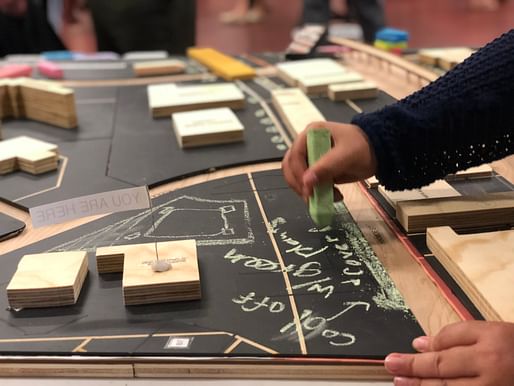

Now in its third edition, the Association of Collegiate Schools of Architecture (ACSA) and the Temple Hoyne Buell Center for the Study of American Architecture at Columbia University announce the winners of this year's 2021 Course Development Prize in Architecture, Climate Change, and Society.
The jury selected five courses "that seek the kind of realism that redefines problems and leaves room for imagination. The courses will reach out to neighbors to cultivate skills fostering a more resilient society." $50,000 in prize money will be split amongst each winner. In addition to funding, each course will receive support to lead their course at their host institution within the next two years.
GULF: ARCHITECTURE, ECOLOGY, AND PRECARITY ON THE GULF COAST - University of Houston (Matthew Johnson & Michael Kubo)
The proposed “superstudio” (a combined research studio and seminar) deals with the history and speculative futures of petro-culture’s long century and its aftermath. We will engage the wicked problems facing individual communities along the Texas-Louisiana coast, from flooding and pollution to toxic development patterns, and propose methods for repairing the discriminatory effects of petro-culture on the broader environment of the Gulf.
HAZARD MITIGATION + RACE + ARCHITECTURE - Florida A&M University (Mahsan Mohsenin, Reginald Ellis & Andrew Chin)
“Hazard Mitigation + Race + Architecture” is a cross-disciplinary collaboration that brings together faculty from two departments at the Florida A&M University: architecture and African-American history. The goal is to provide a cross-disciplinary approach to climate change and recognize Florida’s challenges as ethical and political issues, rather than purely environmental or physical in nature [...] The goal of this course is to introduce segregation and planning inequities in the discussions of architectural responses to hazard mitigations.
HIGH-PERFORMANCE, LOW-TECH - University of North Carolina at Charlotte (Liz McCormick)
This course mixes historical referencing with physical experimentation to demonstrate performance metrics and explore the ways building systems could engage and empower the occupant. Integrated as dynamic systems, buildings could better react to fluctuating environmental conditions. By combining students from across the campus, this interdisciplinary course strives to bridge the gap between design, performance, and building analytics. In the spirit of affordable, low-tech and climate-specific enclosure systems, this class will employ accessible physical testing methods to make building technology innovation more accessible.
JUST PLAY - University of Hawai'i at Manoa (Karla Sierralta, Cathi Ho Schar, Priyam Das & Phoebe White)
“Just Play” is a set of coordinated courses in architecture, landscape architecture, and urban and regional planning at the University of Hawai‘i at Mānoa that will focus on climate change and design justice. The objective is to explore learning through teaching, and teaching through play. Students will conduct research and design place-based, equity-focused educational games for a five-week course, which will be offered to 12 participating high schools through the Mānoa Academy program, led by the College of Social Sciences [...] “Just Play” seeks to engage climate change from an equity standpoint, focusing on social action, empowerment, scenario-planning, systems-understanding, design, and education, reaching beyond technological solutions. It represents a multi-departmental effort to expand our reach as educators and advocates.
PROFESSIONAL PRACTICE 3: FUTURE PRACTICE - Woodbury University (Megan Groth)
“Future Practice” asks students to situate architecture practice in the larger context of our communities, cities, countries, and planet and ask: How do we value what we do as architects? What do we need to achieve in practice in order to pursue climate justice? How then do we create new, implementable value systems by which to restructure our work in order to align it with those goals? Using readings from a variety of different cross-disciplinary sources and thinkers, students will be encouraged to think beyond what practice is and into the radical realms of what practice could become in the future.
Each of the winning course proposals will receive a $10,000 prize spread out over two years to fund the research proposal. The winning proposals will be presented at the ACSA 109th Annual Meeting which will be held virtually March 24-26, 2021.
No Comments
Block this user
Are you sure you want to block this user and hide all related comments throughout the site?
Archinect
This is your first comment on Archinect. Your comment will be visible once approved.